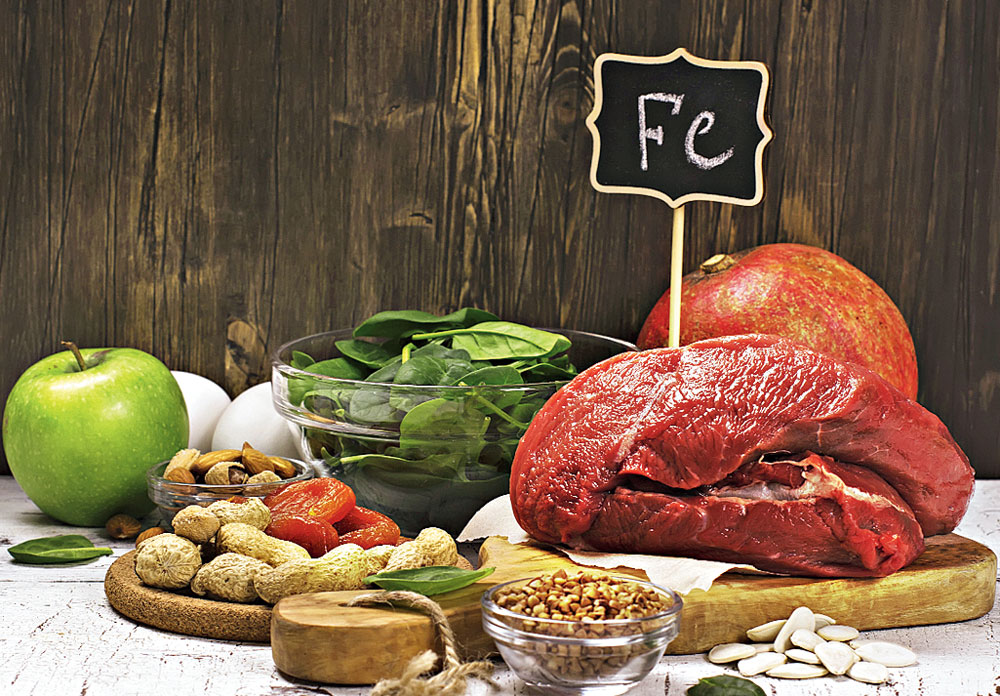Do you feel sluggish and weak and struggle to get through the day? If the answer is yes, chances are that you might be suffering from anaemia, a condition in which your blood has a decreased haemoglobin count.
Haemoglobin is the main part of red blood cells that bind oxygen. It is the most common nutritional deficiency disorder globally and India has one of the highest numbers of anaemia cases in the world. In India, anaemia affects an estimated 50 per cent of the population!
What is haemoglobin?
Haemoglobin, sometimes abbreviated as Hgb, is a protein in red blood cells that carries iron. This iron holds oxygen, making haemoglobin an essential component of one’s blood. If the haemoglobin level is abnormal or low, the cells in the body do not get enough oxygen.
The urban scenario
It is often thought that anaemia mostly affects the economically weak population, those living in rural areas and in poor hygiene conditions. A recent study showed that anaemia affects urban society as well, with one in three teenage girls affected in cities. The main reason being they prefer diet fads or junk food. Refined food, lacking vital vitamins and minerals, is also one of the causes.
Many young people skip breakfast, which should be the biggest meal of the day. Family meals are also a big casualty to urban work schedule with teenagers and children eating junk food at schools, cafes and restaurants. High intake of tea and coffee, and wrong choice of breads, oils, salad dressings lead to empty calories piling up without essential vitamins and minerals. All these make the system weak.
What causes anaemia?
The most common cause, especially in women, is iron deficiency. Iron is an important component of haemoglobin and if you don’t have enough iron, your body cannot make enough healthy oxygen-carrying red blood cells. In most cases there is an inadequate supply of nutrients like iron, folic acid, proteins, amino acids, and vitamins B12, A, C and B-complex vitamins.
Some other causes of anaemia are acute/chronic gastritis, surgery, menstruation, haemorrhoids, childbirth, injuries, certain disorders like thalassemia, medications such as painkillers and antacids, endurance training, excess intake of tea/coffee, frequent blood donation, alcohol intake and colorectal cancer.
Symptoms
- Constant tiredness.
- Zero motivation to exercise.
- Achey muscles and body pain.
- Mood swings and apathy towards social and professional circles.
- Hair fall, brittle nails and dull, pale skin.
- Shortness of breath.
- Restless legs.
- A condition called pica where one craves strange foods or non-food items like ice, clay, dirt, chalk or paper.
- Anxiety.
- Cold hands and feet.
- Irregular periods, cramps and headache.
Diet do
- One should incorporate food rich in iron in their meals, like vegetables such as amaranth, spinach, beet, broccoli, Brussels sprout and microgreens.
- Dried fruits such as raisins, figs and apricots.
- Legumes like kidney beans, lentils, chickpeas and peanuts.
- Nuts such as cashew and pine nut (roasting nuts may damage nutrients, so go for raw and non-blanched varieties).
- Seeds like pumpkin, sesame and flaxseed (always soak seeds overnight).
- Oats, ghee and jaggery.
- White meat like chicken.
- Shellfish, eggs and liver.
- Combined with foods rich in iron, vitamin C-rich foods may increase the absorption of iron by up to 300 per cent.
- Avoid coffee and tea with meals, for they can reduce iron absorption by 50-90 per cent.
- Soaking, sprouting and fermenting grains and legumes can improve iron absorption by lowering the amount of phytates that are naturally present in these foods.
- Food prepared in a cast iron pan tend to provide two to three times more iron as those prepared in non-iron cookware.
- Having legumes and quinoa that are rich in the amino acid lysine with iron-rich meals may increase iron absorption.
Iron supplements
Generally, you should only take an iron supplement under the supervision of a doctor. If you do take an iron supplement, try having orange juice with it to boost iron absorption.
If not treated, anaemia can worsen and become an underlying cause of chronic ill health, such as impaired foetal development, delayed cognitive development and increased risk of infection in young children, and reduced physical capacity in people of all age groups.
Shikha Prakash is an ayurvedic consultant at Padaav Speciality Ayurvedic Treatment Centre, Dehradun, and a visiting consultant at AMRI Hospital, Dhakuria











